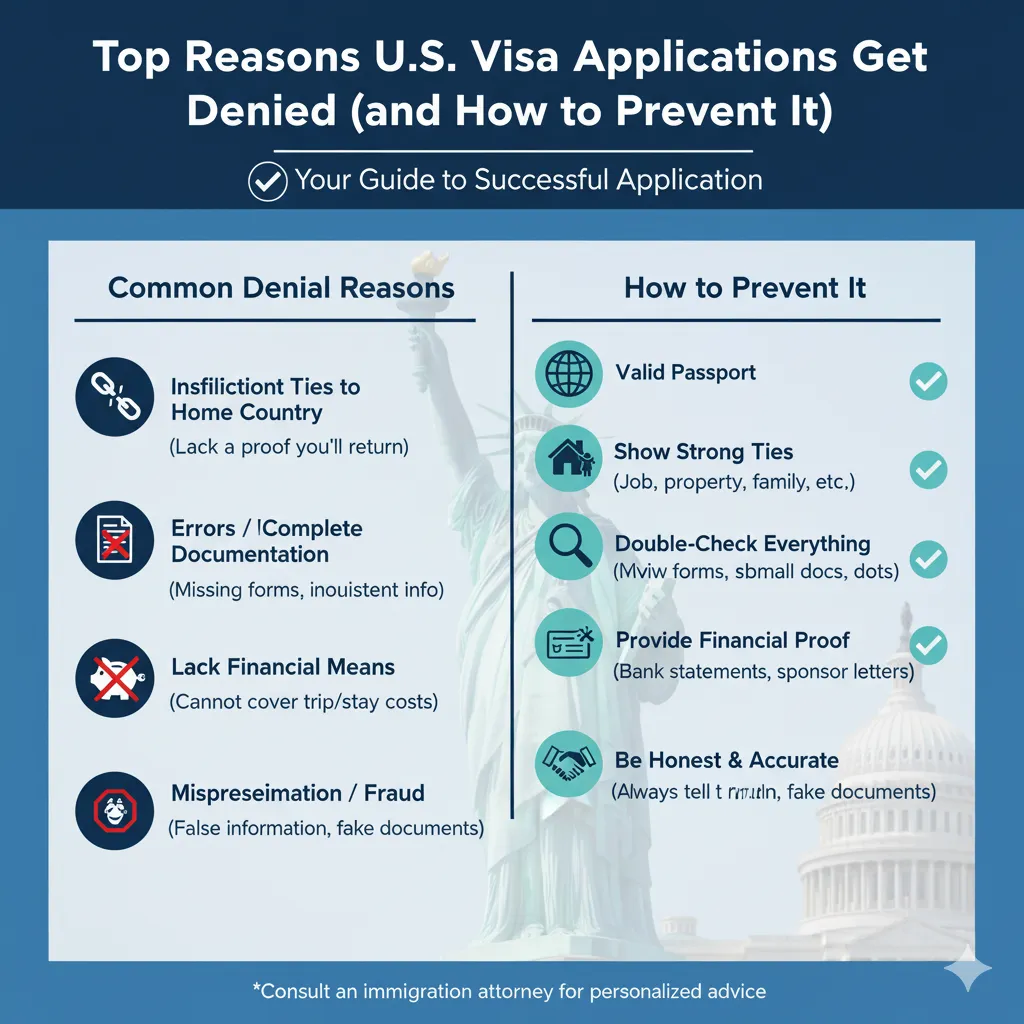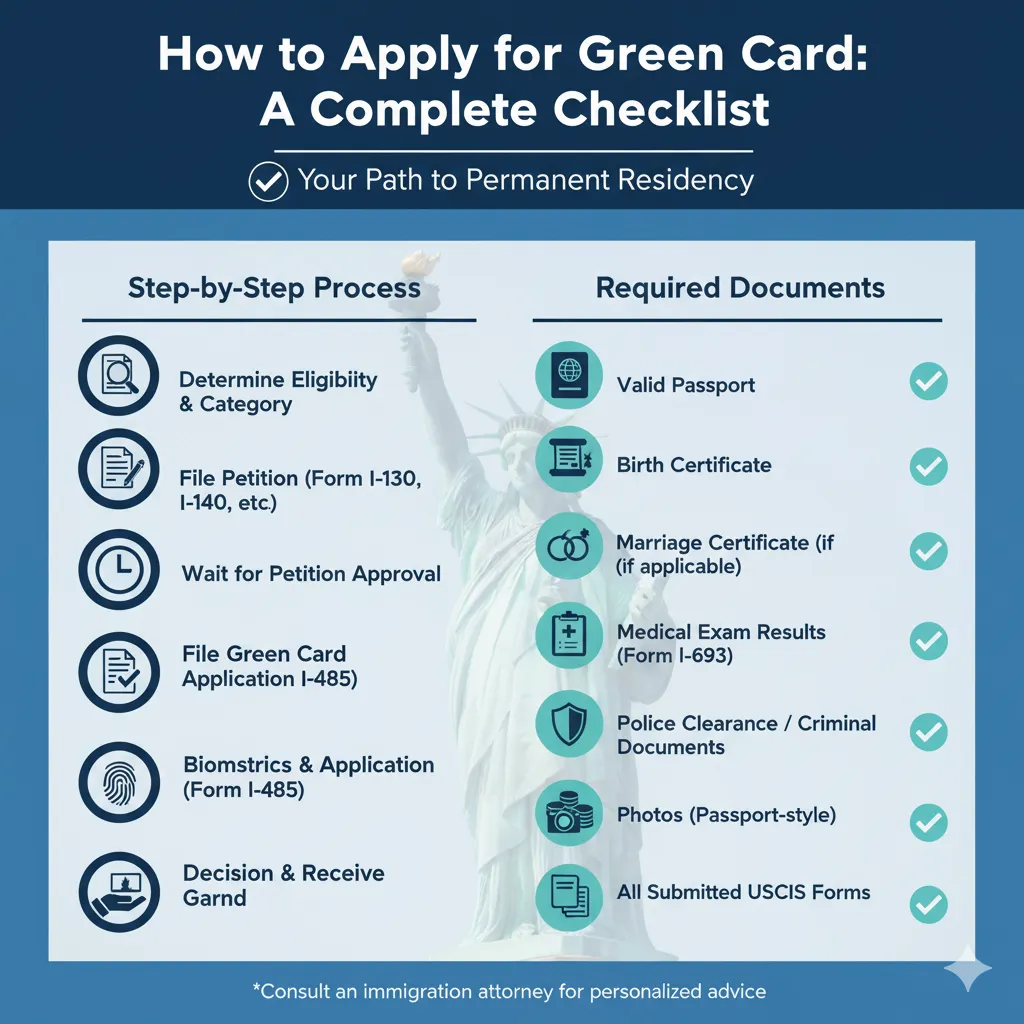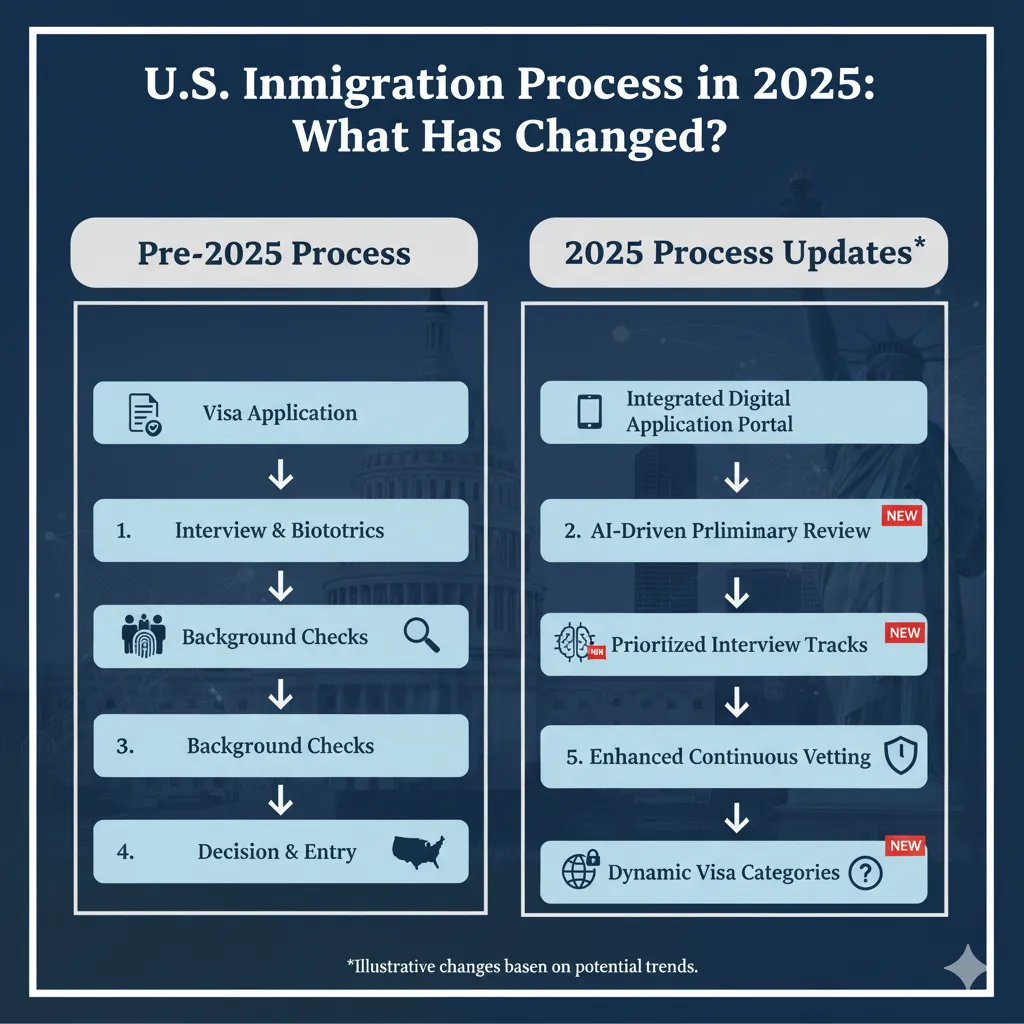Avoiding Disappointment: Top Reasons U.S. Visa Applications Get Denied and How to Prepare
The U.S. visa application process is notoriously rigorous. For thousands of applicants each year, the journey ends in disappointment with a denial notice. Understanding the most common reasons U.S. visa applications get denied is the first and most critical step toward a successful outcome. A denial can not only disrupt your travel, work, or family reunification plans but can also complicate future applications.
Whether you’re applying for a tourist visa (B-2), a student visa (F-1), or an immigrant visa, being aware of these common pitfalls can help you prepare a stronger application and face your consular interview with confidence.
1. Failure to Prove “Non-Immigrant Intent” (Section 214(b))
This is, by far, the most common reason for non-immigrant visa (e.g., tourist, student, business) denials. Under U.S. law, all non-immigrant visa applicants are presumed to have “immigrant intent” (the desire to stay permanently) until they prove otherwise. You must convince the consular officer that you have strong ties to your home country that will compel you to return after your temporary stay.
- How to Prevent It: Prepare to demonstrate strong ties. This includes:
- Stable Employment: A letter from your employer stating your position, salary, and approved leave for your trip.
- Family Ties: Evidence of immediate family (spouse, children) remaining in your home country.
- Property Ownership: Deeds or mortgage documents for a home or land.
- Financial Stability: Bank statements showing you have sufficient funds for your trip and a healthy financial situation at home.
- Clear Itinerary: A well-planned trip with a clear purpose and a return ticket reservation.
2. Incomplete or Inaccurate Application Forms
The visa application form (like the DS-160 or DS-260) is a legal document. Any errors, omissions, or inconsistencies can lead to a denial. Simple mistakes like incorrect dates, misspelled names, or failing to disclose a previous visa denial can raise red flags. Deliberately providing false information (fraud or misrepresentation) will result in a denial and can lead to a permanent ban from entering the U.S.
- How to Prevent It: Triple-check every entry on your forms. Be honest and consistent. If you are unsure about a question, it is better to seek clarification than to guess. Review your answers before submitting and bring a confirmation page to your interview.
3. Insufficient Financial Support
Applicants must prove they can cover all costs of their trip without resorting to unauthorized employment in the U.S. For immigrant visas, this is covered by the Affidavit of Support (Form I-864). For non-immigrant visas, you must show you have the funds yourself or that a sponsor can cover your expenses.
- How to Prevent It: Provide clear financial documentation. This can include personal bank statements for the last 6 months, pay stubs, tax returns, and, if sponsored, a letter from your sponsor along with their financial evidence. The funds should appear stable and not like a sudden, large deposit made just before the application.
4. Criminal History and Inadmissibility
This is one of the most serious reasons U.S. visa applications get denied. A wide range of criminal convictions can make you “inadmissible” to the United States. This includes crimes involving moral turpitude (theft, fraud), drug offenses, and multiple criminal convictions. Even an arrest without a conviction must be disclosed and can lead to extra scrutiny.
- How to Prevent It: Be completely honest about your criminal record. Do not try to hide anything. Depending on the offense, you may be eligible to apply for a “waiver of inadmissibility.” This is a complex legal process, and you absolutely need the assistance of an immigration attorney.
5. Previous Immigration Violations
If you have ever overstayed a previous U.S. visa, worked without authorization, or been deported, you will likely face a denial and may be subject to a 3-year, 10-year, or permanent bar to re-entry.
- How to Prevent It: If you have a prior violation, do not apply for a new visa without first consulting an immigration lawyer. They can determine if you are subject to a bar and whether a waiver is available for your situation. Trying to re-enter without addressing the underlying issue will only result in another denial.
6. Poor Interview Performance
The visa interview is your chance to make your case directly to a consular officer. Being nervous is normal, but being evasive, argumentative, or providing vague or rehearsed answers can lead to a denial. The officer is trained to detect inconsistencies between your application and your verbal answers.
- How to Prevent It: Prepare for your interview. Practice answering common questions about your trip’s purpose, your ties to your home country, and your financial situation. Be polite, confident, and answer all questions truthfully and directly.
Finding Expert Immigration Legal Help in the U.S.
If your case is complex or you have concerns about a potential denial, legal counsel is invaluable.
- Texas: Monty & Ramirez LLP (Houston)
- Illinois: The Milla Law Firm (Chicago)
- Florida: Colombo & Hurd, PL (Orlando)
- California: The Law Office of Nicklaus Misiti (San Diego)
- New York: The Pollack Group, P.C. (New York City)
Conclusion: Preparation is Key to Success
While consular officers have significant discretion, most denials are not arbitrary. They are often based on one of these common reasons U.S. visa applications get denied. By carefully preparing your documentation, being honest and thorough on your application, and understanding what the consular officer is looking for, you can significantly increase your chances of a successful outcome and turn your American dream into a reality.
Sources:
- U.S. Department of State – Bureau of Consular Affairs. (2025). Visa Denials. Retrieved from travel.state.gov.
- U.S. Citizenship and Immigration Services (USCIS). (2025). Inadmissibility and Waivers.
- Boundless Immigration. (2025). Top Reasons for U.S. Visa Denial.




